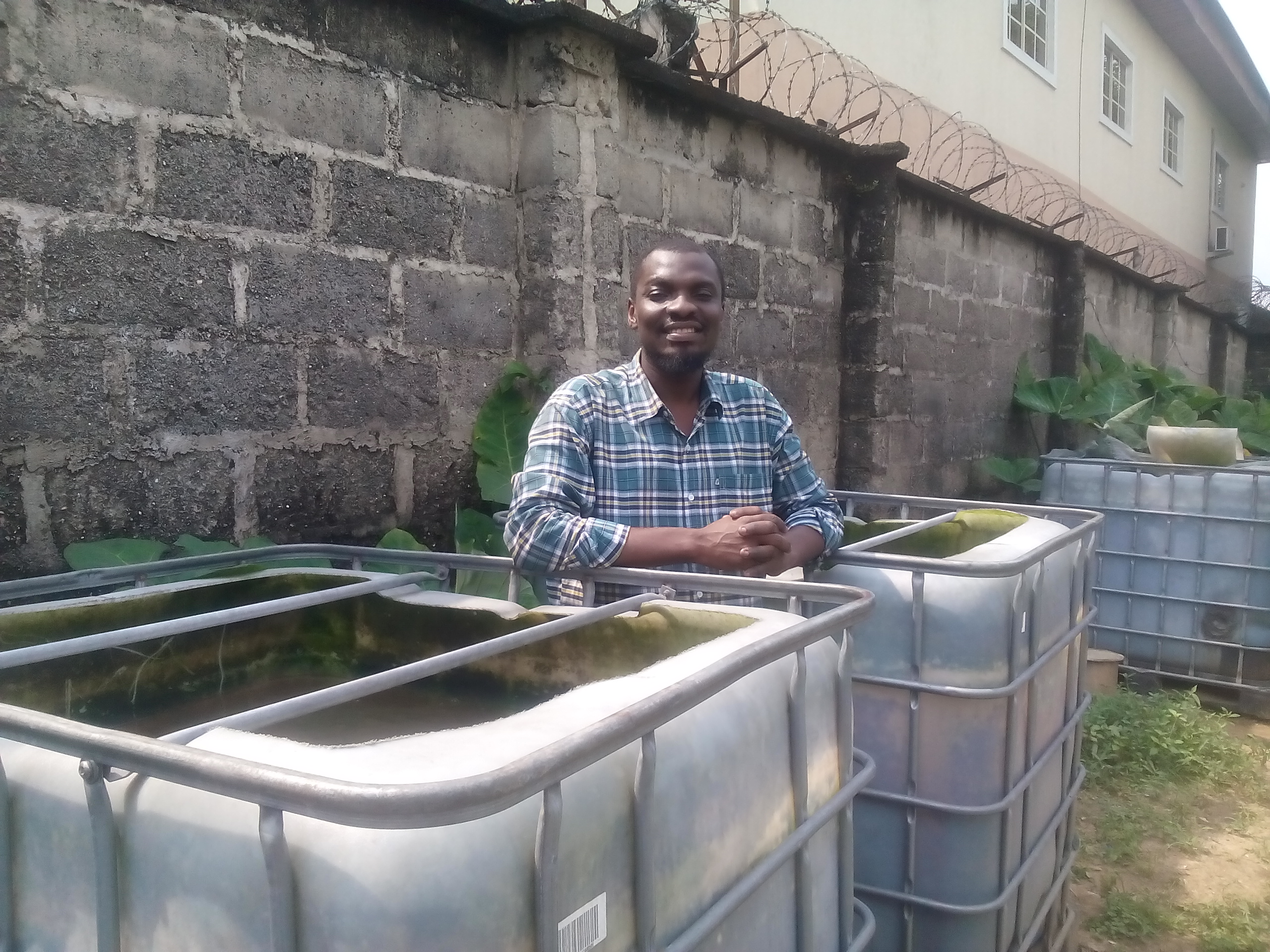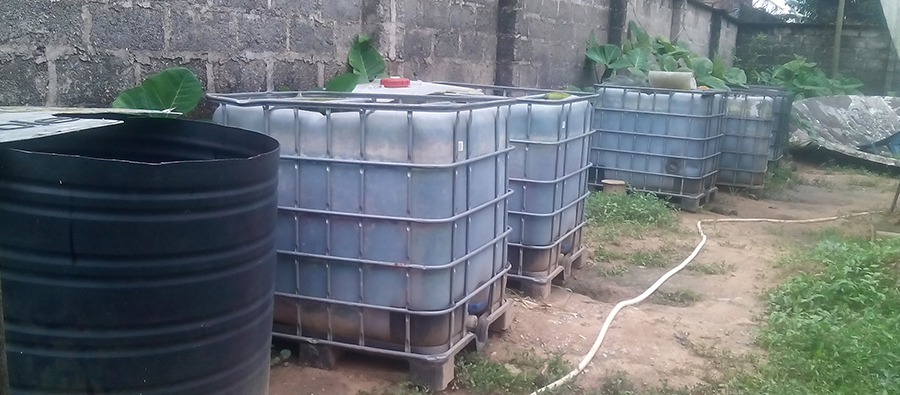Agriculture is one of the major ways Africa can achieve economic emancipation. Yet the image of agriculture as being tedious and unrewarding continually puts off a lot of young people from embracing the sector.
When I set up my farm, I felt the onus was on me to engage, practice what I preached; to show that young people who make agriculture a business can be financially rewarded while fighting hunger and unemployment on the continent.
I currently farm catfish in Port Harcourt, Nigeria. Getting started was a really big challenge, as Port Harcourt has one of the highest costs of real estate in Nigeria. So I got creative. I had access to a cable television station, which has a lot of space and a good source of water. I thought the transmission facility would make an excellent start for an ad hoc fish farm. So I approached the company staff and pitched the idea to them. This was how we started with just one pond and 500 small fish – fingerlings. Today we have expanded to seven ponds and by the first quarter of next year we hope to triple our ponds on that facility. Plans are also already underway to move into another rented property, increase the capacity of the ponds used as well as fishes reared, while setting up processing units such as smoking kilns and freezing units.
Roadblocks to building farm businesses in Nigeria
It isn’t easy for farmers to set up business in Nigeria. The challenges are quite enormous. It is difficult to access funding, and there is little technology and mechanized tools to use. Our infrastructure is deficient. We lack power and access roads linking the farming produce to cities and industries where they are needed. Furthermore, there is not much land available for large-scale farming, which is why I took my unconventional approach.
There is also a value addition deficit; agricultural produce is still peddled as a raw commodity rather than higher-value processed food products, which decreases farmers’ chances of ever achieving commensurate wealth from agriculture.
The solutions are out there – show them the money trail!
First, we must arm farmers with an entrepreneurial mind-set to begin to see farming as a business. We must improve the capacity of our farms and farmers, as well as boost agro-allied innovation by offering training, business support services and development consultancy. My colleagues and I are already working on this, through our umbrella firm known as Green Stalks & Foliage.
Second, young people should be systematically inspired to take part in agriculture by developing strategies to show them the money trail and the impact that their engagement will have on the country and the continent. There is a need to understand this new demography of farmers. What worked for older farmers can no longer hold water with them. Farming also needs to be mechanised and digitized to attract and keep this demography. We need to provide good amenities and invest in capital project development, linking roads from farms to cities, propping up rural communities to make young people want to stay back there – i.e. good housing to live in, a steady supply of electricity, access to the internet, etc. Through the Agriculture is Sexy (also known as Agric Rocks!) Network which I founded in 2014, we work to ensure that more young people are attracted to embrace agriculture and equipped to take on the sector as a business. We do this by often using the things that interest them: arts, entertainment and technology. We put on seminars and set up clubs in schools and colleges. We also create our own content for television and the web, offer certified trainings, and even broker deals for the discounted purchase of inputs and use of machinery.

Chibuike on his fish farm in Port Harcourt.
Finally, we need to improve access to funding. Banks need to offer lower interest rates and farmers should be encouraged to seek alternative sources other than from the banks. This can include reaching out to family and friends, applying for grants or entering competitions. These can give seed capital to start or scale. I am currently working to get Peterscoin off the ground – an alternative finance crowd funding platform to help smallholder farmers in Africa raise the needed capital to expand their farming activities, since access to finance from conventional institutions such as banks is almost non-existent.
Next year, I shall be proud to help the Global Farmer Network start hosting an African specific roundtable meeting—-amplifying the voices of farmers in my country and on the continent while ensuring that farmer-led bottom up solutions to the challenges that they face are brought to the table. Change can only come when policies are devised with farmers in the room.
I have quite an ambitious set of calls to action but I believe that they are very much achievable, given time.




Comments
I enjoyed and found your blog exercise extremely interesting. Please continue to provide us with high-quality stuff. Keep it up. Starting a fish farming business might be the ideal venture for you if you’ve ever wanted to pursue your entrepreneurial dreams while fostering a relationship with nature. Pls, do well to visit my blog for more details and enlightenment.
https://www.makeoverarena.com/start-a-fish-farming-business